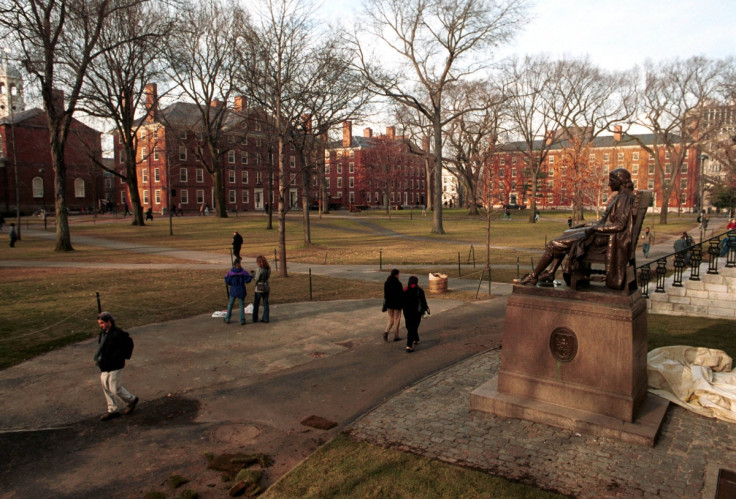Harvard University to ban members of single-gender clubs from taking on leadership roles

Massachusetts' Harvard University is taking its fight for gender equality to the doors of some of the academic institution's most prestigious, not to mention, gender specific "final clubs". According to a new rule, members of single gender clubs will not be allowed to take up leadership roles in college organisations or sports teams. They will also be ineligible for school recommendations for scholarships and fellowships like the Rhodes programme.
The radical rule was announced on 6 May and will go into effect with the freshmen batch of 2017 and is meant to make the 14 so-called final clubs, as well as nine fraternities and sororities become co-ed and be more inclusive.
In a statement released by the university's president, Drew Gilpin Faust, she stated, "[The clubs] encourage a form of self-segregation that undermines the promise offered by Harvard's diverse student body.
"The College cannot ignore these organizations if it is to advance our shared commitment to broadening opportunity and making Harvard a campus for all of its students."
Harvard's action comes on the heels of reports from the sexual assault task force that found that single-sex final clubs contributed to a culture that supported sexual assault and come second, after dormitories, as the most frequent location for sexual assault.
Dean Rakesh Khurana who has been one of the key administrators behind the new rule, wrote an email to the students explaining, "The discriminatory membership policies of these organizations have led to the perpetuation of spaces that are rife with power imbalances. The most entrenched of these spaces send an unambiguous message that they are the exclusive preserves of men.
"In their recruitment practices and through their extensive resources and access to networks of power, these organizations propagate exclusionary values that undermine those of the larger Harvard College community."
However, the clubs are unhappy about the restrictions and have already sought legal advice on how to challenge the university. The 225-year-old Porcellian Club, the oldest of the groups, released a statement saying: "We are disappointed with this unfair and punitive decision that attacks Harvard's own students because they make a choice to freely assemble at unaffiliated, off-campus, private organizations."
The male final clubs have already gone head-to-head with the administration over the admittance of women to their elite group. In 1984 the clubs decided to shift off the campus in order to continue with their gender restrictive admittance.
Other universities had previously made similar changes. In 2014, Amherst College banned fraternities and sororities while Wesleyan University made a rule that all its fraternities were required to be co-ed.
© Copyright IBTimes 2025. All rights reserved.






















